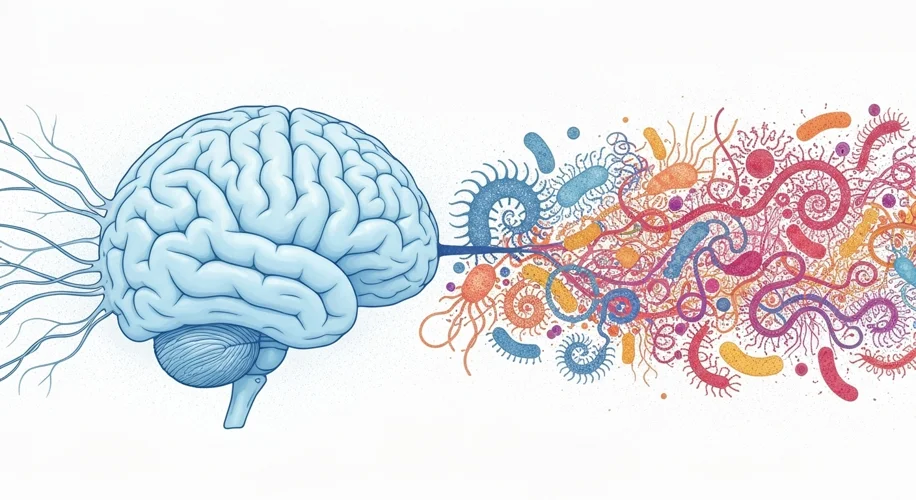Did you know that your gut might be talking to your brain in ways we’re only just beginning to understand? It sounds like science fiction, but it’s a fascinating area of research called the gut-brain axis. My background is in atmospheric science, but I’m always drawn to discoveries that show how interconnected everything is, especially when it comes to our health.
Think of it this way: your gut isn’t just for digesting food. It’s packed with trillions of microorganisms, collectively known as the gut microbiome. These tiny organisms aren’t just passengers; they’re active participants in your body’s functions. And it turns out, they have a direct line to your brain.
How does this communication happen? It’s a two-way street. Your brain can influence your gut – think about how stress can lead to an upset stomach. But, more intriguingly, your gut microbes can influence your brain and, by extension, your mood and overall well-being. They produce neurotransmitters, the same chemical messengers your brain uses to regulate emotions like happiness, anxiety, and stress.
For instance, about 95% of your body’s serotonin, a key mood regulator, is produced in your gut. The microbes living there play a role in this production. So, if your gut microbiome is out of balance, it could potentially affect your mood.
Researchers are exploring how different types of gut bacteria might influence feelings of anxiety or depression. While this is complex and not a simple cause-and-effect, the evidence suggests a significant link. It’s like having a whole ecosystem inside you that’s constantly sending signals up to your brain.
What does this mean for us? It highlights the importance of nurturing our gut health. This often comes back to what we eat. A diet rich in diverse, plant-based foods – like fruits, vegetables, whole grains, and legumes – can help foster a healthier, more diverse gut microbiome. Fermented foods, such as yogurt, kimchi, and kefir, are also great sources of beneficial bacteria.
While more research is needed, understanding the gut-brain connection offers a new perspective on how our lifestyle choices impact our mental and emotional state. It’s a reminder that taking care of our internal world, from our gut up, is key to overall health. It’s a profound example of the intricate systems at play within us, much like the complex interactions within our atmosphere that I’ve studied. It’s truly amazing how much is happening beneath the surface, guiding our experience of the world.

